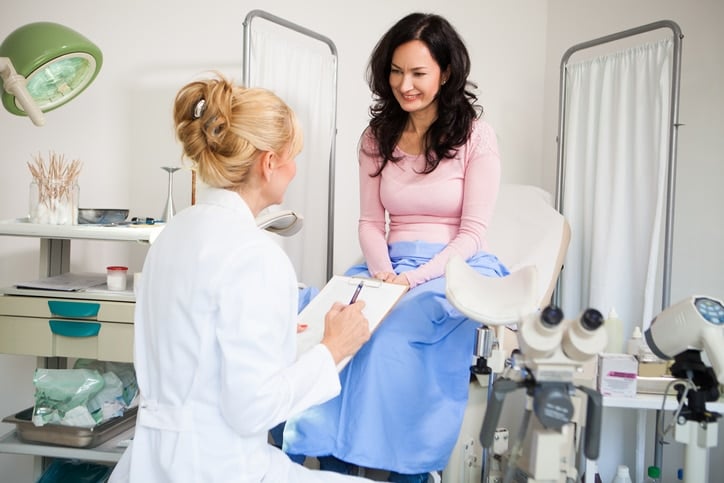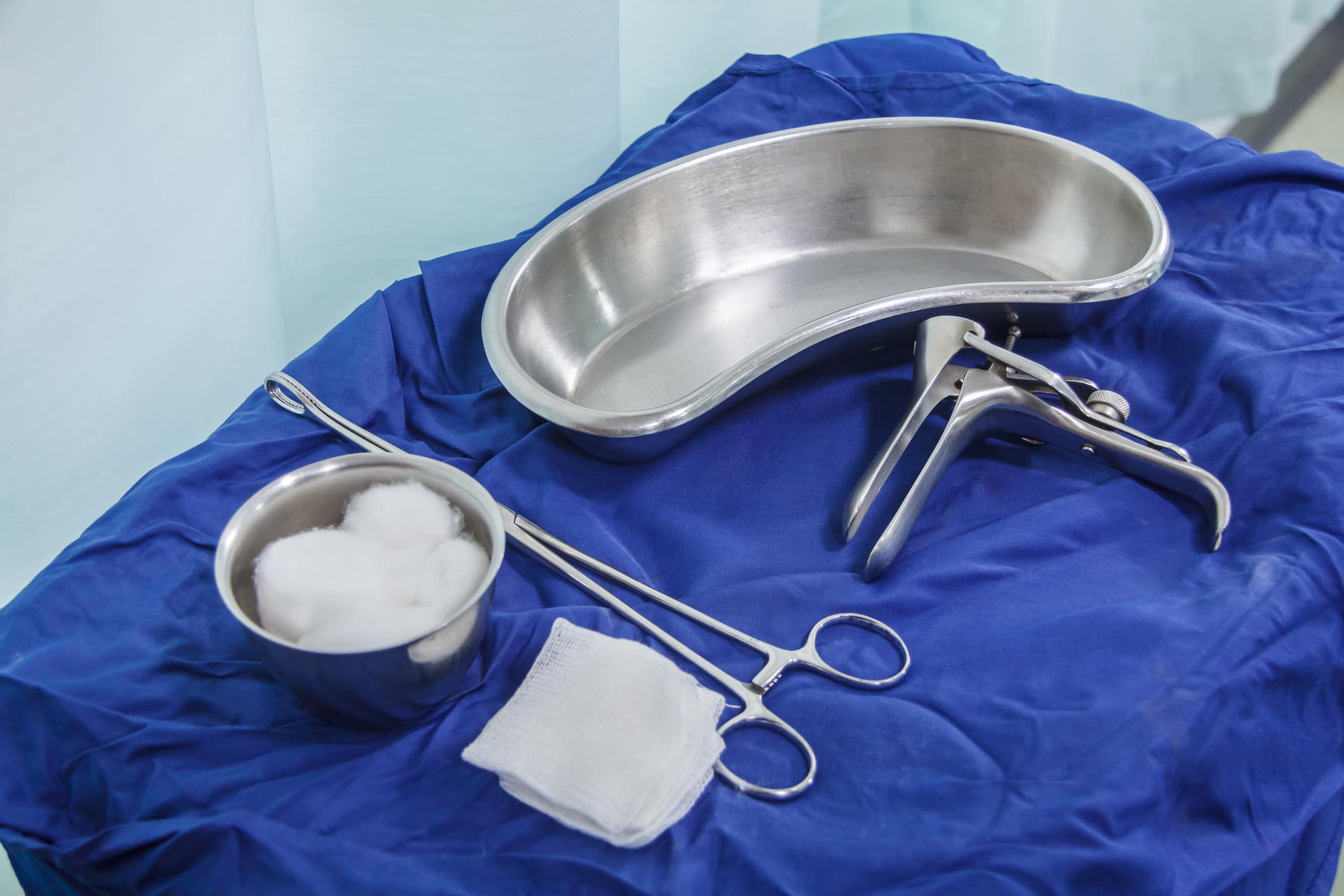What Is A Pap Smear?
A Pap test is a screening for cervical cancer. It collects cells from your cervix, which are then sent to a laboratory for testing. It is a standard gynecological procedure that examines your cervix for changes or abnormalities. It can also detect infections and human papillomavirus (HPV).
How Often Should I Get A Pap Smear?
Regular Pap tests detect problems quickly and rule out mistakes made by false-positive and false-negative results. A Pap test is recommended every year for women over the age of 21 and slightly less frequently for women over 30.

How Is a Pap Smear Test Performed?
Your doctor or nurse can do a Pap test in the exam room of a doctor’s office. You will lie down on your back on an exam table. You will place your feet on either side of the table in footrests (cradles for your feet that help keep your legs bent and open). Your doctor or nurse will put a tool called a speculum into your vagina (you may feel pressure) and will open it to see your cervix.
Your doctor or nurse will use a special stick or soft brush to take a few cells from the surface of and inside your cervix and vagina. Your doctor or nurse will put the cells on a glass slide or in a small container and send them to a lab for testing. If your doctor or nurse orders an HPV test, the cells taken for your Pap test are tested for HPV at the same time.

Pap and HPV tests usually last about 5 minutes. You may have some spotting (light bleeding from the vagina) afterward.
What Our Patients Have To Say
"OB-GYN visits can be filled with anxiety at times. After first bringing my daughter to this place I realized we have found the best service you can get when it comes to women’s health. They are very discreet, super clean, with plenty of room, and deliver great and professional service. Also, Robin (NP) made my daughter feel very comfortable prior to examination. My daughter said she wouldn’t be as nervous had she known it was going to be this easy! With my visitation the Kristan (NP) was very thorough going over some of my concerns, and they were able to make a same day appointment for a mammogram, in order to save me time. If I could rate 10 stars I would."
Does A Pap Smear Test hurt?
Getting a Pap smear can be slightly uncomfortable for some women. That said, the screening is generally described as minimally uncomfortable, not painful. Patients may feel a sense of pressure from the speculum and momentary discomfort when the tiny swab collects cells from the cervix. The test is very quick, so sensations are fleeting.
Is there anything I can do to Minimize Discomfort?
The thought of pain during a Pap smear is far worse than the experience itself. Patients may feel more empowered with a few strategies. Suggestions include:
- Ask the doctor or nurse to use a small-sized speculum.

- As the test begins, make a concerted effort to breathe slowly and relax the pelvic muscles. It may help to place the hands on the thighs to feel more supported.
- An over-the-counter pain reliever such as acetaminophen or ibuprofen can be taken before the appointment.
What Are The Benefits Of A Pap Smear?
PapSure reduces the amount of false results by using Speculite®, a bright light technology that illuminates the vagina and helps the doctor visually identify any abnormalities. The cells are examined under a blue light which will cause any irregular cells to appear white. Results are rapid and provide extra confidence to the Pap test results.
How long will it take to get the results of my Pap Smear?
It typically takes 1 to 3 weeks for patients to know the results of their Pap test. In our office, we perform this screening using advanced technology that allows us to observe the sample immediately. Thanks to direct visual screening in which cells are observed under blue light, patients may know the results of their Pap smear before they leave the office.
Why Choose Craig Ranch OB/GYN For Your Pap Smear?
We strive to detect cervical cancer as early and as accurately as possible with the use of PapSure®. PapSure is the only in-office direct visual screening exam, approved by the Food and Drug Administration (FDA) for all women. It is a visual exam, performed by your physician, in addition to your Pap Test.
What Do I Need to Do to Prepare for My Pap Smear?
To ensure your Pap smear test is most effective, there are a couple things to do beforehand:
- Avoid intercourse, douching, or using any vaginal medicines or spermicidal foams, creams, or jellies for two days before having your Pap smear, as these may wash away or obscure abnormal cells.
- Try not to schedule a Pap smear during your menstrual period. It’s best to avoid this time of your cycle, if possible.
What Happens If I Get My Period Right Before My Pap Smear?
Technically, you can get a Pap smear while on your period, but it may be a better idea to reschedule to a time after your period ends. That’s especially true if you have a relatively heavy flow, although it’s a good idea for everyone. Having your period can affect the results of your test.
Are There Any Alternative Tests to a Pap Smear?
For women under 65, it’s essential to be routinely screened for cervical cancer. This is typically done through a standardized Pap smear. But research is now suggesting that the HPV test may be a superior form of screening. Thus far, results from studies demonstrated that primary HPV testing detects cervical neoplasia earlier and more accurately than the Pap smear.
The U.S. Preventive Services Task Force has detailed three choices for women over the age of 30:
- A Pap test screening every three years
- An HPV test alone every five years
- Both tests every five years
For women between the ages of 21 and 29, the task force recommended a Pap test alone every three years.
I've had the HPV Vaccine. Do I Still Need to Schedule Regular Pap Screenings?
Whether or not you've had the HPV vaccine, your doctor will recommend that you continue receiving routine Pap screenings based on clinical guidelines. This may relate to several factors. For example, the HPV vaccine may not be fully effective for people who were sexually active before receiving the injection. This is because there is a chance that exposure to HPV has already occurred.
Why am I Spotting after My Pap Smear?
Some women experience spotting or bleeding after their Pap smear. This is not a cause for alarm, it's a relatively common risk that may occur for a few different reasons. Because the Pap smear involves the scraping of your cervical lining to obtain cells, blood flow will naturally increase to the area afterward. This can result in some sensitivity and bleeding. Studies indicate that women who take birth control pills may have a higher risk of bleeding after their Pap screenings. This is usually light and lasts no more than a day or two.
If you experience cramping or bleeding after your Pap smear, avoid wearing tampons. It's also wise to avoid sexual intercourse so as not to worsen these side effects.
Does an Abnormal Pap Smear Mean I Have Cancer?
Your Pap smear results may come back "positive." This means that your test has identified that some of your cervical cells have changed. This is called dysplasia. Having some abnormality within the tissue of your cervix does not mean that you have cervical cancer. An abnormal Pap smear could occur due to HPV, sexual activity, pelvic inflammation, or infection. The good news about cervical cancer, if we can call it that, is that the condition tends to progress over several years. Your abnormal Pap won't simply discover abnormal cells, it will identify the type of abnormal cells that exist and a general measure of the abnormality. This information can then guide the next diagnostic steps.
What Happens if My Pap Results are Abnormal?
When your doctor receives your abnormal Pap results, they will contact you regarding the next steps. Sometimes, when the abnormal results are very mild, the step is to repeat the Pap in a few months. When there is a more significant abnormality, the doctor may schedule you to return to the office for a test called a colposcopy. This is somewhat like a standard Pap in the way it's performed. The difference is that the doctor will observe the cervical tissue using a scope instrument. The colposcope can immediately spot changes in tissue patterns, color, and structure, as well as abnormal blood vessels.
Can a Colposcopy Diagnose Cervical Cancer?
Like the Pap smear, a colposcopy that is performed after dysplasia has been found is diagnostic in nature. That said, colposcopy is rarely definitive. If, during your test, the doctor spots a notable abnormality in the cervical tissue, they may take a biopsy. This quick removal of cells or tissue provides a living sample that can be examined more closely in a pathology lab. It is the pathological examination that confirms or rules out the presence of cervical cancer.
Are Pap Smear Tests covered by Insurance?
The Affordable Care Act requires most health insurance plans to cover a wide range of preventive health services for women, including Pap smears performed on the recommended schedule. Patients should contact their insurance provider for detailed information outlined in their benefits package.
Schedule Your Pap Smear Today!
To schedule your consultation , call 214.544.6600. The providers at Craig Ranch OB/GYN are proud to serve patients in McKinney, TX and surrounding areas of Texas.
